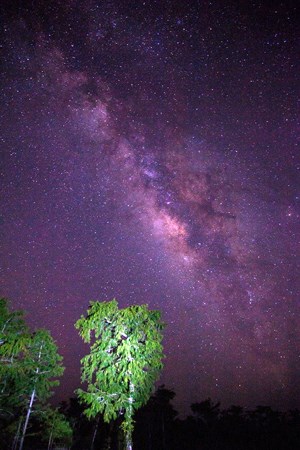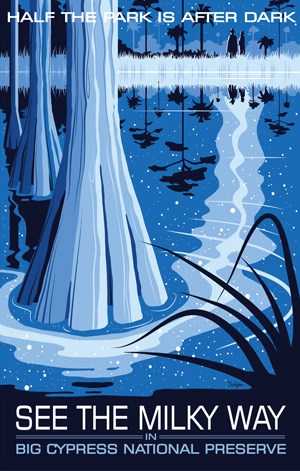
Mark Riehle Big Cypress National Preserve has a resource that many take for granted or may not even be aware of - our natural "darkness." Even with widespread development on the east and west coasts of Florida, the Preserve remains one of the darkest areas east of the Mississippi River. In the heart of the swamp it's still possible to view the Milky Way, something that many who have only been in urban or suburban settings have never seen. Learn More Below!Losing the DarkStarry skies are a vanishing treasure because light pollution is washing away our view of the cosmos. It not only threatens astronomy, but it also disrupts wildlife and negatively affects human health. Hard to believe? See for yourself: (6:25, Youtube). Change Your Lights, Save the Nights!Arguably, one of the easiest ways to save the night sky is by changing your light bulbs. Learn about the best types of bulbs to use depending on where you are. 
Astronomy ProgramsView one of the darkest night skies in the eastern United States by attending ranger-led astronomy programs at Big Cypress National Preserve. The National Park Service, along with partners, will be conducting night sky outings. Find dates and more information. The National Park Service is concerned about our contribution to light pollution and has set policy that seeks to reduce or eliminate the adverse impacts of light pollution. At Big Cypress National Preserve, staff members are working to reduce light pollution. To learn more about the efforts to "save the night" click on the links below: |
Last updated: August 5, 2025
